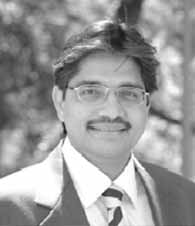|
Executive Interviews: Interview with Sreeram Iyer on Business Process Outsourcing
January 2006
-
By Dr. Nagendra V Chowdary
-
Studies have shown that the employees
working in the BPO are suffering from
disorders (behavioral and physical).According
to you, has this been a verifiable fact, a
misnomer, or just a glorified disenchanter?
As far as Scope is concerned, we work
normal day hours for the large part.As a group,
Standard Chartered believes in work-life
balance; I have not seen any major problems. -
BPOas an industry is growing very fast but
it has failed to attract the best talent into the
industry. People generally perceive BPO jobs
as low-end jobs. Why do you think that BSchool
Graduates and other skilled
professionals are not attracted to join this
industry?
There is a general perception that BPO
jobs are only low-end. But the reality is that
jobs are fast moving up the value chain and
more and more companies are now involved
in Research, Analytics, etc., which employ
highly educated staff. There is plenty of room
for professionals in the top end of the value
chain where the work is very challenging. Our
company for example employs professionals
like CAs and MBAs engaged in financial
analysis, cross-border trade, foreign exchange
business, etc. -
There has been a lot of attrition in the
industry and companies are having trouble in
recruiting the best talent. Could tell us how
you recruit the best talent for your company
and your strategy to retain them?
Attrition is higher in voice-based services.
Scope is basically a transaction processing
company and offers a wide array of services
to the Standard Chartered Group. Therefore,
our attrition figures are very much in control
and do not pose a big threat to our operations. We have several distinct advantages for
attracting talent - firstly, our Brand.We are an
institution that is more than 150 yeas old; we
are an International Bank and operate in more
than 50 countries.We employ close to 40,000
people worldwide; our management is very
diverse and spans 80 nationalities. We offer
brilliant learning infrastructure and a robust
personal Learning and Development plan to
each of our staff; we give them multiple
opportunities for growth and chances to move
to new jobs within the Standard Chartered
Group. We benchmark twice a year with our
industry peers and offer competitive
compensation to them. Retention is a composite of various factors that
we lay emphasis on – Leadership,
Performance and Rewards system,Work/Life
policy, Brand and Communications
Opportunities and Talent Pipeline. -
Who are the business leaders you admire
most and wish to emulate? What is your
leadership style?
I admire Herb Kelleher, CEO of Southwest
Airlines. This is an exceptional companywhere
profits grew by 10-15% each year for 31
years. He ran the company by building trust
in his top team and field staff. He listened to
employees; he cared and treated all with
respect. He led from the heart.My style is to focus on execution and diligence.
I attempt to drive consensus but amconscious
that it is not a sustainable style! Which is the latest book you have read?
The Southwest Airlines Way by Jody Gittell is
a fascinating account of that great company.
It did not disconnect traditional organizational
practices from the non-work family/personal
aspects like personal pain, tragedy, spirituality
etc., while at work! It bridged gaps between
work and family divides. Employees did not
have to shed their personality when they came
to work.
|
The Interview was conducted by Dr. Nagendra V Chowdary, Consulting Editor, Global CEO and Dean, IBSCDC, Hyderabad. This Interview was originally published in Global CEO, IUP, January 2006. Copyright © January 2006, IBSCDC
No part of this publication may be copied, reproduced or distributed, stored in a retrieval
system, used in a spreadsheet, or transmitted in any form or medium – electronic,
mechanical, photocopying, recording, or otherwise – without the permission of IBSCDC. |
